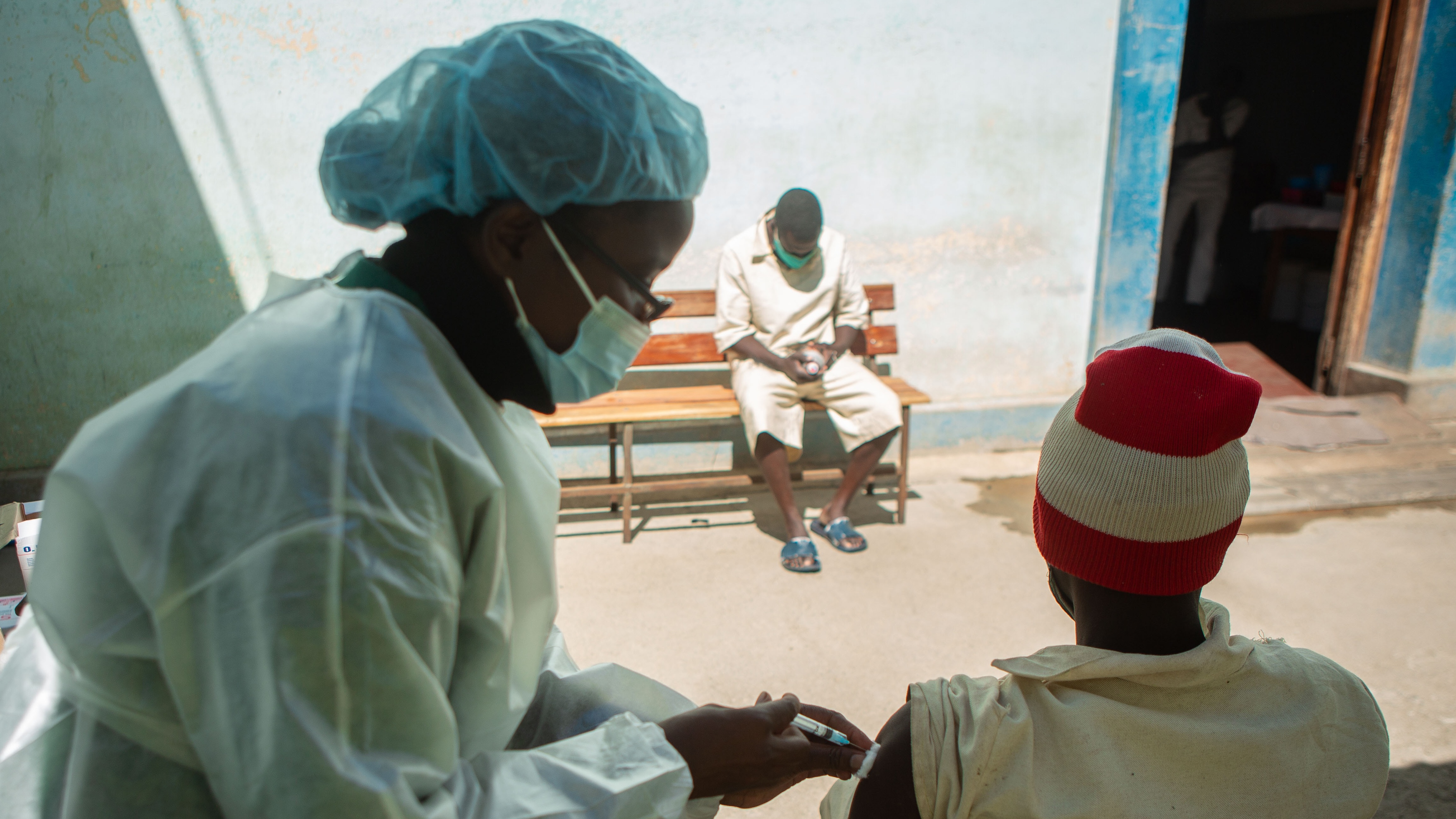‘Everyone is panicking’: Zimbabwe morgues overwhelmed as Covid deaths surge
African nation struggling to vaccinate population as infections spike in rural areas

A free daily email with the biggest news stories of the day – and the best features from TheWeek.com
You are now subscribed
Your newsletter sign-up was successful
Zimbabwe is struggling to bury its dead as a third wave of Covid-19 hits the country's rural communities.
The southern African nation recorded a total of 58,996 infections and more than 1,700 related deaths in July - the highest monthly tallies yet. According to latest figures from the World Health Organization (WHO), a total of 116,853 coronavirus cases and 3,919 deaths have been confirmed in Zimbabwe since the beginning of the pandemic.
The country's authorities have admitted that the recent surge in Covid fatalities nationwide has “overwhelmed undertakers, resulting in delayed burials”, reports The Guardian.
The Week
Escape your echo chamber. Get the facts behind the news, plus analysis from multiple perspectives.

Sign up for The Week's Free Newsletters
From our morning news briefing to a weekly Good News Newsletter, get the best of The Week delivered directly to your inbox.
From our morning news briefing to a weekly Good News Newsletter, get the best of The Week delivered directly to your inbox.
Philip Mataranyika, owner of Nyaradzo Funeral Services in Harare, told the newspaper that “because there have been many deaths, the end-of-life industry has been under immense pressure, resulting in delays all round”.
“Our hospitals are full of the sick, and our morgues are full of the dead,” he added.
As undertakers in Zimbabwe's capital and other cities race to bury Covid victims, “panic has set in” too in rural communities, CNN reports.
Until recently, life outside of the country's urban areas has “continued at a normal pace”, with movement largely unrestricted, and “those who wore face masks were often laughed at”, says the broadcaster.
A free daily email with the biggest news stories of the day – and the best features from TheWeek.com
But three of four Zimbabwean districts that were declared epicentres of Covid outbreaks in June are in rural areas and are now under strict lockdowns.
“Everyone is panicking,” a resident of Domboshava, a rural area around 25 miles northeast of Harare, told CNN. “We used to hear that there was Covid but now it is on our doorstep.”
As the authorities battle to stop the spread, vaccination sites across Zimbabwe are “struggling to meet surging demand” as people rush to be immunised against the virus, reports Cape Town-based News24.
According to latest tracking by Oxford University, only about 13% of the population has received one vaccine dose, with less than 7% fully vaccinated.
The nation's vaccination centres have been under increased pressure since the government announced in late June that only fully vaccinated vendors would be allowed to trade at cotton and tobacco markers. And demand for jabs increased further when the state-owned grain marketing company warned that that it would buy only from immunised farmers.
Residents of urban areas have described queuing for hours to get vaccinated, with some arriving as early as 4am to secure a spot. And the situation is even worse for people in rural communities, who account for the majority of the 15 million-strong population.
Zimbabwe's jabs rollout, which began in February, “has not prioritised rural areas and there has been a marked shortage of shots outside the cities”, says CNN.
Although Zimbabwe was allocated nearly a million coronavirus vaccines through the UN-backed COVAX vaccine-sharing scheme, “none have been delivered”, the Associated Press reported last month.
Instead, the country has relied on a mix of “purchased and donated” shots from China, Russia and India - around 4.2 million in total, according to the news agency.
-
 The Week Unwrapped: Do the Freemasons have too much sway in the police force?
The Week Unwrapped: Do the Freemasons have too much sway in the police force?Podcast Plus, what does the growing popularity of prediction markets mean for the future? And why are UK film and TV workers struggling?
-
 Properties of the week: pretty thatched cottages
Properties of the week: pretty thatched cottagesThe Week Recommends Featuring homes in West Sussex, Dorset and Suffolk
-
 The week’s best photos
The week’s best photosIn Pictures An explosive meal, a carnival of joy, and more
-
 Epstein files topple law CEO, roil UK government
Epstein files topple law CEO, roil UK governmentSpeed Read Peter Mandelson, Britain’s former ambassador to the US, is caught up in the scandal
-
 Iran and US prepare to meet after skirmishes
Iran and US prepare to meet after skirmishesSpeed Read The incident comes amid heightened tensions in the Middle East
-
 Israel retrieves final hostage’s body from Gaza
Israel retrieves final hostage’s body from GazaSpeed Read The 24-year-old police officer was killed during the initial Hamas attack
-
 China’s Xi targets top general in growing purge
China’s Xi targets top general in growing purgeSpeed Read Zhang Youxia is being investigated over ‘grave violations’ of the law
-
 Panama and Canada are negotiating over a crucial copper mine
Panama and Canada are negotiating over a crucial copper mineIn the Spotlight Panama is set to make a final decision on the mine this summer
-
 Why Greenland’s natural resources are nearly impossible to mine
Why Greenland’s natural resources are nearly impossible to mineThe Explainer The country’s natural landscape makes the task extremely difficult
-
 Iran cuts internet as protests escalate
Iran cuts internet as protests escalateSpeed Reada Government buildings across the country have been set on fire
-
 US nabs ‘shadow’ tanker claimed by Russia
US nabs ‘shadow’ tanker claimed by RussiaSpeed Read The ship was one of two vessels seized by the US military